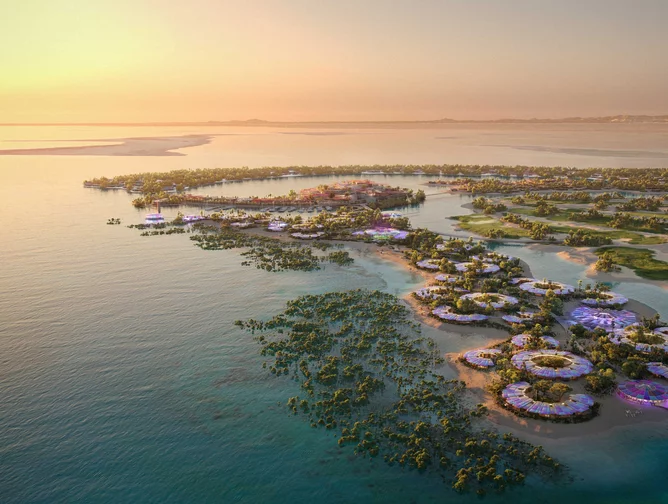John Pagano leads the sustainable approach to development at Red Sea Global, which is encouraging carbon sequestration through a mangrove planting project
Red Sea Global (RSG) is one of the world’s most visionary developers, wholly owned by the Public Investment Fund (PIF) of Saudi Arabia. We are spearheading a new model of development, putting people and planet first and leveraging the most innovative concepts and technologies to deliver projects that actively enhance the well-being of customers, communities and environments.
The company’s portfolio includes two world-leading destinations announced by HRH Crown Prince Mohammad bin Salman bin Abdulaziz Al-Saud, The Red Sea and Amaala. Collectively, these responsible and regenerative tourism destinations will aim to enhance Saudi Arabia’s luxury tourism and sustainability offering, going above and beyond to not only protect the natural environment, but to enhance it for future generations to come.
A regenerative approach to tourism and business
The company is driven by sustainability and we’ve seen various showcases of this over the past couple of years through a number of green building initiatives, sustainable hospitality business, and regenerative tourism projects. But, the latest endeavour of the company is one of carbon sequestration as RSG undergoes mangrove planting with the target of rooting 50 million trees by 2030.
“We hold the utmost respect for the environment in which we operate and recognise it as our most valuable asset. It is our shared obligation to not only safeguard it, but also proactively enhance it wherever possible,” says John Pagano, Group CEO at Red Sea Global.
“The successful opening of our Mangrove Nursery is a testament to that unyielding dedication to the preservation and rejuvenation of the Red Sea coastline.”
This is perhaps one of the most simplistic approaches taken by RSG and, as explained, a necessary one alongside its usual cutting-edge solutions.
“While we will continue to explore novel approaches, embrace cutting-edge methodologies, and utilise innovative technology, often nature already provides the greatest solutions. The power of mangrove forests to store carbon, to manage flooding and stabilise coastlines, and to provide shelter for fish and other organisms, makes them one of nature’s super ecosystems,” says Pagano.
“Our Mangrove Nursery will increase numbers of mangroves and boost biodiversity, ensuring we reach the environmental ambitions we have set ourselves.”
The company’s Group Chief Environment and Sustainability Officer, Raed Albasseet also says:
“The establishment of a sustainable mangrove ecosystem is a key part of our commitment to protect and enhance the natural environment of our destination. These trees are among the most efficient tools we have for carbon sequestration, with the capacity to absorb up to 5-10 times more carbon than other plants.”
“Coupled with the positive impact on biodiversity, the successful cultivation of seedlings forms a central pillar in our ambition to achieve a 30% net conservation benefit across our destinations. I speak for the entire team when I express my pride in reaching this milestone moment for our organisation.

